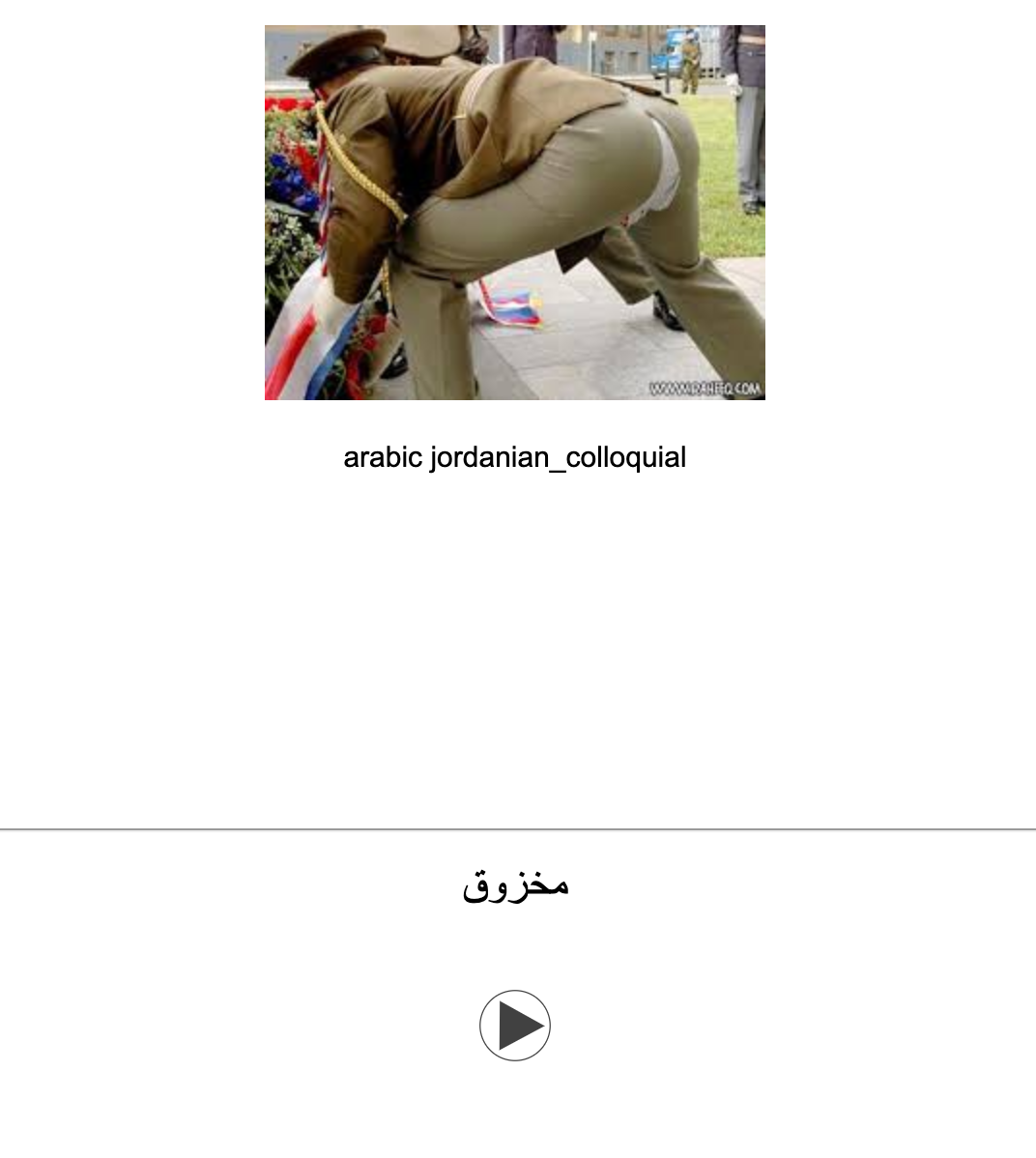A colleague at work asked me for some tips on learning German and her situation and goals were fairly common so I thought I'd write up some notes here.
For the specific scenario under consideration, and to ground what follows: my colleague's mother tongue is not English, but she wants to learn German since she now lives there. She's interested in all the skills and wants to be able to read complex literature and philosophy, for example, but in the short-term building up spoken abilities is the main focus and intention. She knows a few words / phrases here and there but not too much more than that.
🪨 Context / Foundations
I'll start with some general context and foundations that I think should form the basis for what follows:
- If you're about to invest a bunch of time / effort (and probably money, either in the form of your time or for books/teachers) into learning a language you should make the investment in a spaced repetition system like Anki. It'll repay the effort you put in and is anyway a more efficient way to learn.
- Use focused feedback of various kinds to improve your ability to do things with your target language. This can take many forms, but it's a core principle that you should keep returning to. For example, this might mean feedback on pronunciation, or sentences you're writing, or even words that you're studying (in the form of active recall with Anki).
- Pick good quality materials to support your study. For some languages (popular / commonly-spoken languages) these will probably be cheap. For lower-resourced languages these are often eye-waveringly expensive. Bit the bullet. Good materials make a big difference, though it's worth taking advice from someone who's studied the same language as to whether a particular book is good or not.
- Stay laser focused in what you do / apply the 80:20 principle. With language learning, especially at the early stages, there's a fair amount of boilerplate work that just needs to be done (see most of the things in the first 'True Basics' section below) and there are strong reasons why you should do those things etc. Basically: stick with these things and don't deviate too much. (This only applies if you're trying to be as efficient as possible in your language learning. It's entirely within reason that you'd not need to be efficient, in which case many options open up!)
- Related: Be clear about what it means to level up. There are a million and one things that you could do at any single point during your language learning and it helps to be clear about what you're doing and why, then work on it, complete it and then reflect and move onto the next thing.
- Ingest comprehensible input where possible. This is a deep topic, but the basic idea here is that you should try as much as possible to read authentic materials that are almost completely within your capacity/level to understand. Ideally they should be interesting materials and you should be motivated to understand their contents. (Note that spoken conversations can be comprehensible input as well!)
These are the core foundations that I (with a half-dozen languages under my belt and experience learning bits of quite a few more, plus lots of time spent reading about and trying out language learning methods) believe are at the core of any efforts you should take. If any of the above are unclear, it can be useful to clarify (with me, or with some other source) but don't get too lost down the (deep) rabbit-hole of methodology as it will detract from your original goal.
All of what follows assumes that you're serious about your language studies and are willing to invest some time into it. To my mind, this means something like 30-60 minutes every day minimum, six days per week. You'll see the most progress early on and it can actually help to invest a little more time early on since seeing your fast progress will increase your motivation in turn, but only you know your circumstances and what works.
🍼 True Basics
This is the phase where you start from nothing and no knowledge to where you have learnt some of the most commonly used words and phrases as well as have a good understanding of the pronunciation and basic grammar. Depending on how much time you put in, this phase should take somewhere on the order of 2-5 weeks.
The things you should work your way to accomplish here include:
- learning some basic spoken phrases that you'll use frequently (think 'thank you', 'good bye', 'how much is …', counting from 0-100, 'what does … mean' and so on). You can get these (and the pronunciation for them) from many places on line or in a basic phrasebook.
- learn roughly 600 of the most frequently-used words for your target language. Many languages have something called a 'frequency dictionary' (or an equivalent list published online) which orders the words of that language in order of how common those words are. There are different approaches to exactly which list to pick (go with a Gabe Wyner 625 list if it exists (here's an extract/preview for German), otherwise go with the Routledge frequency lists, otherwise try to find something else!), but basically you are aiming to bootstrap your language abilities. The 'why' behind this is that first 500-100 words make up a really high % of the words that you'll see in any text (80+% depending on the difficulty of the language) so if you invest in those common words earlier you'll be in a good place to progress forward.
You'll want these materials to end up into Anki so you can continue to be tested on them so you don't forget them. Here, for example is a card I created for a word that means 'ripped / torn' in Arabic.
I get shown the picture and then need to come up with the word in Arabic for that concept. Note that I chose a quirky image on purpose.
- Learn the alphabet: (I'm thinking of languages like Russian / Arabic etc here, and not something like Japanese / Chinese). You're in this for the long-haul, and most comprehensible input that is efficient for you to ingest is in the form of written texts so you should just bite the bullet and learn the alphabet and how to pronounce it. It's not that hard! Even an alphabet with a bad reputation like Arabic can be learned in a weekend.
- Get a basic understanding of some core grammar. Good phrasebooks will usually have a section where they spend a few pages outlining how the language works with some basic grammar. (i.e. things like 'verbs always go at the end of sentences' or 'nouns take a bunch of different endings depending on the role a word has in the sentence', and so on.) You're not trying to master any of this, but you are trying to bootstrap your awareness of some of the core structures of how a language works.
- Try to listen to the language being used / spoken. If possible, try to make whatever you're listening to also something that you can mostly understand. (For some people this might be family or friends conversations, for others this might be other audio materials at a beginner level.) The goal here is to start to get the sound and feel for the rhythms of the language to bury its way into your ear.
How / What?: Basics
There are many (many) options at the total beginner level. My go-to sources / methods are some combination or selection of the following. It's really hard to give generic advice here so YMMV, but all these are suitable for this level:
- Michel Thomas course (if it exists for your language, do all courses / extensions that exist (usually 2 levels plus a vocab extension pack)). These are audio courses that will give you a solid basic foundation. As an alternative or sometimes additional option, you might want to try Pimsleur courses (again, if they exist). These are not cheap, but they're a good way to get going.
- Frequency dictionary and/or lists: Gabe Wyner's Fluent Forever app is based around the concept of frequency dictionary lists so if it supports your language then you can either use that app or just get the raw word list and create your own flashcards + study those basic words.
- Something like a Duolingo / Drops / Language Transfer course if it exists for your language. These are a double-edge sword since Duolingo by now has quite extensive courses available for popular languages. I wouldn't recommend using it as your core source of studies because the likelihood is that you'll drop away from your studies before completing it. That said, they do have mostly solid materials and they have spaced repetition (of some kind) built in so if you're someone who lives to complete things and can invest a bit of time into moving through the materials quickly, then these kinds of courses aren't the worst idea. (But definitely see them as a means to the wider end and not the core of what you do.) If you're someone who where possible prefers to study / learn away from technology / apps, try the excellent 'Assimil' books / course as the equivalent for this. (Note that this section potentially takes you very far off from the 2-5 weeks estimate I mentioned above. Only you know the extent to which you can afford to really invest in foundations.)
- Very easy readers. Again, if your language is popular then you might have access to these kinds of readers. Sometimes they're developed for children, but other times they're also available for adult students too. You're looking for something (it'll often be advertised as such) with a small / limited vocabulary size of words used. This is on the border with the next phase of study, so this can and will also be part of what you do next.
📚 Invest in sentences and your comprehensible input
At this point, somewhere in the middle of the basic phase and on your way to the next phase, you'll want to start investing into generating your own sentence-level comprehensible input. One way is to take the 600+ word frequency list and use those words as the basis of making basic sentences. Note that these can and will be really basic. You will likely want to do this in collaboration either with a teacher, or a friend or someone who can correct the things you're writing / producing. All these sentences and materials should then be fed into your spaced repetition system / Anki. For example, here's the back of a card where I'm being tested to produce a particular phrase that was missing (where the ... is in the sentence).
There's a picture above it to jog my memory if the sentence doesn't. And you can't hear it here, but there's also audio for the missing word / phrase. You'll want to be generating a lot of these kind of cards, not only because vocabulary learning in the context of actual sentences / real language is extremely powerful but also because it solidifies the root grammar structures, syntax and common ways of building language in your mind.
🚘 Middle Earth: Getting Independent
Some people actually stop here. If you're just going on holiday and you want to be able to be active using the language, understand some basic things and have some simple conversations, you actually don't need too much more. Everything you do from here on is because you are interested in levelling up and (eventually) reaching greater comprehension of a wider variety and level of materials.
This middle stage is where a lot of people get stuck. It's important to know that the intermediate plateau is a real thing and you will need strategies to not end up here forever (or quit, which will also eventually happen if you stay here for too long). (I wrote a whole book about strategies to get out of the intermediate plateau for Arabic, but the first section of the book applies to any other language as well. The book is available for free along with a bunch of audio interviews with language learning experts.)
The specifics of what you do in this middle stage is also heavily dependent on what your interests / motivations are for studying this language. In other words, are you mostly interested in getting really good at spoken conversations + listening, or do you actually not care about spoken language at all and mainly want to be able to read authentic materials without ever needing to to speak to anyone?
Core parts of this stage:
- continuing down the road of the frequency dictionary. Probably at the end of this stage you want to have mastered at least the 2000 most frequently used words, but ideally you'd get through most of the top 5000 most frequently used words. There are lots of ways that you can accomplish this, and it shouldn't just be a case of you rote memorising the words. Everything you do in this phase should be intertwined with comprehensible input of some kind, and vocabulary should always be learned within the context of authentic language but there are lots of ways of doing that so you'll have to figure out what applies best for your situation and needs.
- collocations / context: at this stage you want to be maximising your input to the core structures and ways your target language is used. Most words don't exist in a vacuum, and the further you get down the frequency list (or the more advanced your language source materials get) the more small bits of context and shifts in how individual words are used will make more difference. All of this is just me repeating that you should be reading and exposing yourself to lots of pieces of language.
- skill-dependent exercises and approaches: this is unfortunately vague, but depending on your interests and motivation you'll want to do one thing or another. For speaking, to give some examples, usually what I recommend is that you tackle a series of 'islands' that are defined by your interests. This means starting with a situation or a kind of conversation that you know you want to be really comfortable having. Perhaps you want to be able to talk about your daily routine, or maybe you want to be able to talk about food and the things you eat or cook. Then there are a series of things you'd do to prepare for mastering this 'island': gathering relevant vocabulary, thinking through the kinds of questions and/or answers that would come up during the conversation, generating some possible options or prepared answers or questions, practicing those with yourself and then later others, and so on. But really there are a million different ways to slice this depending on your interests and specific circumstances.
How / What?
What does this mean in specific? Some variation or combination of the following would be common:
- reading a lot in graded readers (hopefully these exist for your target language)
- graded listening: again, these hopefully exist for your language
- italki lessons or targeted spoken practice with a teacher (depending on what specific approaches you take)
- Clozemaster or Glossika: these are two tools that allow you to work your way through the most frequently used words using spaced repetition and context-rich language selections. Both also offer some kind of audio component. You might not need this if you have a solid method / rhythm already going with your use of Anki, but it's worth trying out at least to see if it clicks.
- writing sentences / paragraphs, then having them corrected, and then using the corrected versions of the language in Anki along with cloze deletion (a variation of what I showed above with the sentence and then a word or phrase missing that you have to guess) to practice the language used in a particular sentence.
😎 Onwards: Independent Study Land
At this point in your journey, you're at the B2 level and maybe soon to be C1. Your goal and process at this point is independent study: you're choosing materials and areas motivated by your interests. If you're still going + studying and you reached this level, the process never ends from here on out. It's just an ongoing set of little deep-dives into lots of different areas depending on your needs and interests.
Everything at this level is dependent on the skills you're working on, and your needs in terms of vocabulary / topic areas. Your vocabulary goals will be to move from the 5000 most frequent words on out into the next 5000-10,000 words after that, but usually it doesn't make sense to look at a literal frequency list for the words beyond 5000. For starters, they often don't exist, and your 'next words' will differ from person to person. You'll likely have a bunch of sub-areas that you get good at beyond the core 5000. For example, for me, I got really good at medical vocabulary (cardiology + neurology) in Dutch but I'm much weaker in other areas. The specific areas you spend time on will be driven by your needs and interests.
How / What?
Almost everything here is driven by specific needs, but it will involve and include:
- lots of learner-driven comprehensible input
- needs-driven activities (whether you're still focused on spoken prowess vs reading vs listening vs writing)
- open-ended practice like the kinds of tasks recommended by my (free) CoachBot self-study tool.
Going deeper
Most of what I wrote above was some concrete thoughts on paper that would serve as the basis for a conversation and I'm fully aware that lots of details were buried within or barely mentioned. Usually what I'd do after sketching out this overview is drill down into your individual situation and start to sketch out a more specific / precise plan, but this is a blog and I don't do coaching professionally any more!
Nevertheless, it's useful to be aware of the bigger picture and I hope that this blog served as a highly general overview that can drive further exploration and experiments in your own language-learning journey!





